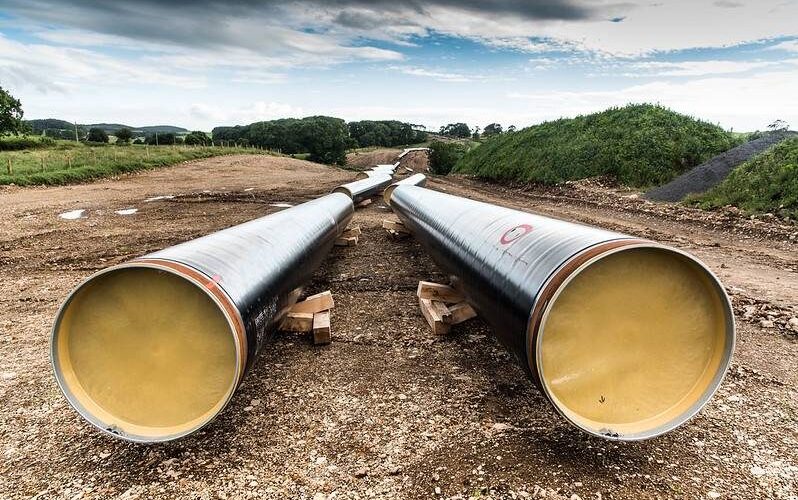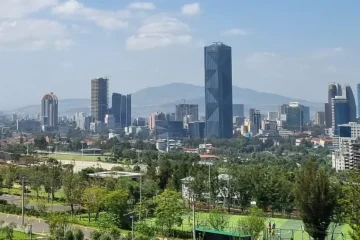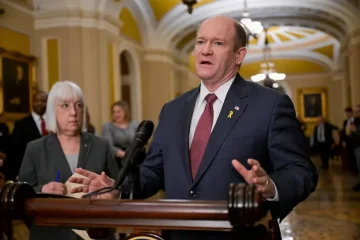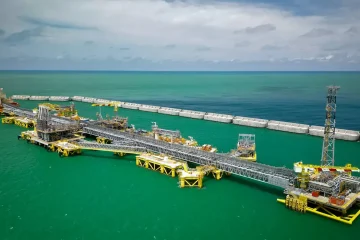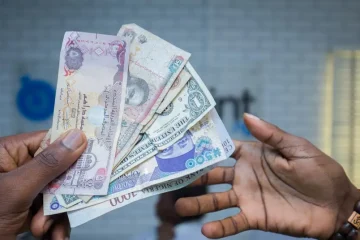MOHAMED ADOW
A BRITISH government facing financial meltdown and spending billions propping up industries in decline. This isn’t news from the 1970s, or 2008. It’s today.
After a heated debate in Number 10, the government is still considering giving the green light to a billion-pound loan guarantee for a controversial gas pipeline project in Mozambique.
Signatures on the deal are already underway, but the government still hasn’t confirmed how much money it’s prepared to stump up. This week’s fresh uncertainty comes as new reports suggest that the government agency responsible for due diligence on agreements like this is ‘cutting corners’ as it races to get deals done.
If this loan guarantee goes ahead, it’d mean British cash – via the UK Export Finance programme – underwriting a scheme predicted to lead to widespread displacement of local communities.
And, of course, the project will lead to a catastrophic increase in carbon emissions. Together with two other gas projects in Mozambique, this project has the potential to produce seven times the annual carbon pollution of France.
I have first-hand experience of what that leads to. I grew up in a pastoral community in northern Kenya, and in 2000, a drought killed much of my father’s cattle herd and destroyed our neighbours’ livelihoods. There are many more droughts than there used to be because of climate change. No continent is less responsible and yet more affected by climate change than Africa.
As director of Kenya-based energy think tank Power Shift Africa, I know that British investment in African energy could work wonders. We have rapidly growing markets, and more wind, sun and geothermal energy than any other continent. But this project is the wrong choice.
First, the gas market was plummeting even before the coronavirus crisis. In January, it reached its lowest point in a decade. And it’s set to shrink even further when climate targets start limiting the methane and carbon emissions generated by natural gas. At least eleven other similar projects were canceled or delayed in April alone by more sensible investors.
African energy experts are already warning that investing in fossil fuels at the expense of renewable energy could be disastrous for the continent’s financial stability. At a recent event, they pointed to the fact that some African countries that export oil have already seen those revenues halved since the start of the pandemic. If African nations have old-fashioned fossil fuel infrastructure forced upon them, the experts warn, they could be left in crisis as the world moves towards clean energy and no longer needs to buy the energy they’re selling.
And job creation? Well, that looks shaky too. While the US will get nearly 17,000 jobs out of their £5bn investment, the UK will get just 2,000 jobs from our investment of £1bn – meaning we’d be paying a premium of half a million pounds per job. And worst of all – only 2,500 jobs will be available for locals in Mozambique. When a deal hands almost seven times as many jobs to Americans as Mozambicans – the citizens of the country the project is touted as developing – who does it really benefit?
So, with the financial case for investment shaky, presumably this project helps out with Britain’s other priorities? In a word, no.
Last year, the UK became the first major economy to legally commit to net-zero carbon emissions. That means underwriting this pipeline won’t just dent Britain’s credibility when it comes to climate change – it will trigger enormous government spending on offsetting the carbon emissions pouring from this project.
The government defended its controversial decision to merge DFID with the Foreign Office by saying it wanted to make overseas spending more strategic projects. So why is the Department for Trade investing £1bn in a project that is predicted to trigger displacement and worsen climate change when the Department for International Development is spending £35m on ‘strengthening communities’ in the same region?
Nodding through this project would be a sign that Number 10’s grip on its policy priorities is seriously weak.
Or – taken alongside Rishi Sunak’s ‘green recovery’ package announced today – it shows the government split down the middle. One group wearily walking down the path of least resistance, throwing billions into fossil fuels because that’s the way they’ve always done it. And another with a different perspective, prepared to pull the levers of one of the most powerful countries in the world to face the challenge of climate change head on.
CLIMATE LEADERSHIP
The UK will be hosting the crucial UN climate summit in Glasgow next year. It’s a chance to boost Britain’s soft power on the world stage – if Boris Johnson’s government makes the right decisions now.
British investment in Mozambique could be so different. At the beginning of this century, Africa leapfrogged the outdated technology of landline telephone lines, and moved straight to mobiles instead. The idea of Boris Johnson spending a billion pounds to lay miles of landline telephone cables across Africa would be ridiculous.
So there’s no need for Britain to double down on failing fossil fuels in Africa when we are blessed with almost endless wind, sun and geothermal energy. Instead of pouring money into the technology of the last century, Britain could be using its world-leading expertise to help us harness our abundant renewable energy potential, and build the technology of the future.
For a lesson in climate leadership, Boris Johnson could look to Africa. Despite their lack of historic responsibility for climate change, African countries are leading the way. Rwanda recently submitted its national climate plan under the Paris Agreement, committing it to reduce emissions by 16% in the next ten years and up to 38% with support from developing countries. Net-zero commitments, like the UK’s, are under discussion in more than 30 African countries, including Mozambique.
Using British taxpayers’ money to prop up fossil fuel projects in Africa is a transparent attempt to restart the world’s sixth richest economy on the backs of people whose lives will be devastated by climate change. It diminishes Britain, and it has to be stopped. – Thomson Reuters Foundation.
- Mohamed Adow is founder and director of Power Shift Africa, a think tank based in Nairobi, Kenya.

